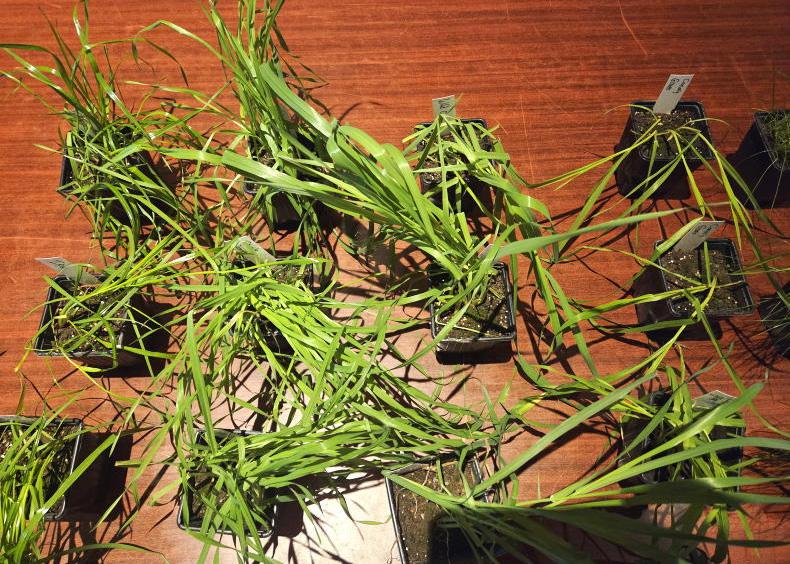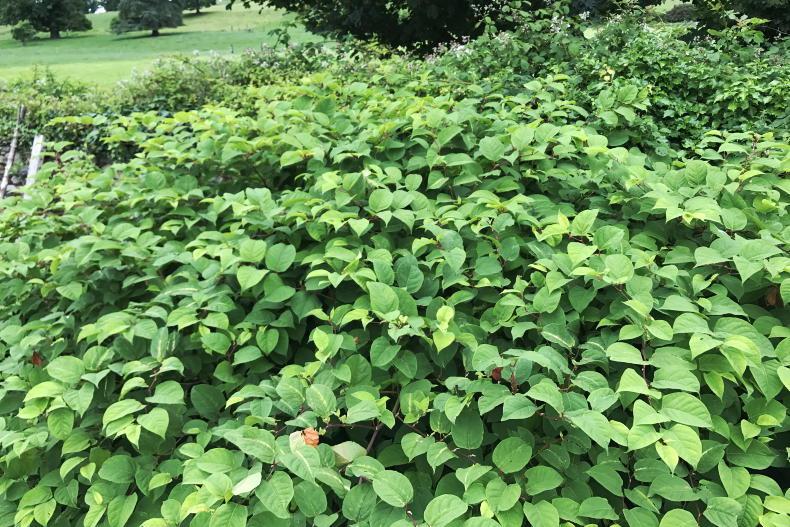DEAR SIR:
Last week the Irish Farmers Journal printed a letter from a Mr Richard Romer, who was concerned about information about what to do if you find Japanese knotweed on your farm being “unnecessarily alarmist”, and then gave a list of treatments he recommends instead of considering professional advice.
Readers should refer back to the distribution maps printed in the original article about Japanese knotweed by Anthony Jordan (5 August 2017) to see the spread of the weed since 1980, which has mainly been caused by human intervention and the types of treatment suggested by Mr Romer. We have come across a multitude of cases where people have tackled Japanese knotweed using home-spun methods, only to make the problem much worse and more expensive to fix in the long term.
A few corrections to Mr Romer’s misplaced advice then. The best time of year to treat Japanese knotweed is in Autumn initially, when the plant is drawing nutrients down into the rootstock for winter. Cutting the stems and filling the hollows with glyphosate after a few days will do nothing other than force the root system to go into dormancy and prevent effective treatment this year.
This technique can be effective if canes are treated immediately. Be aware, though, that the cut canes and fragments can regenerate into new plants, so farmers must consider how to store them safely until they rot.
Mixing glyphosate with soap is both off-label and will not make the glyphosate more effective. Finally, unless it is absolutely necessary, please do not dig up your knotweed as this is the most effective way to spread Japanese knotweed to other locations on and off your farm.
There are reputable consultancies that will give you a thorough, site-specific management plan you can act on yourself or with your own contractors to be sure the knotweed is tackled in a cost-effective manner without risk of spread. Envirico offers a free telephone consultation service to help you identify if you have a problem and what to do about it, and we are more interested in providing an excellent service for a reasonable cost and having satisfied customers, than making a quick killing.
Read more
Japanese knotweed could affect farm payments
The plight of noxious weeds on Irish farms
Letter: concerns over spread of Japanese Knotweed
Identifying the dreaded invader: Japanese knotweed
DEAR SIR:
Last week the Irish Farmers Journal printed a letter from a Mr Richard Romer, who was concerned about information about what to do if you find Japanese knotweed on your farm being “unnecessarily alarmist”, and then gave a list of treatments he recommends instead of considering professional advice.
Readers should refer back to the distribution maps printed in the original article about Japanese knotweed by Anthony Jordan (5 August 2017) to see the spread of the weed since 1980, which has mainly been caused by human intervention and the types of treatment suggested by Mr Romer. We have come across a multitude of cases where people have tackled Japanese knotweed using home-spun methods, only to make the problem much worse and more expensive to fix in the long term.
A few corrections to Mr Romer’s misplaced advice then. The best time of year to treat Japanese knotweed is in Autumn initially, when the plant is drawing nutrients down into the rootstock for winter. Cutting the stems and filling the hollows with glyphosate after a few days will do nothing other than force the root system to go into dormancy and prevent effective treatment this year.
This technique can be effective if canes are treated immediately. Be aware, though, that the cut canes and fragments can regenerate into new plants, so farmers must consider how to store them safely until they rot.
Mixing glyphosate with soap is both off-label and will not make the glyphosate more effective. Finally, unless it is absolutely necessary, please do not dig up your knotweed as this is the most effective way to spread Japanese knotweed to other locations on and off your farm.
There are reputable consultancies that will give you a thorough, site-specific management plan you can act on yourself or with your own contractors to be sure the knotweed is tackled in a cost-effective manner without risk of spread. Envirico offers a free telephone consultation service to help you identify if you have a problem and what to do about it, and we are more interested in providing an excellent service for a reasonable cost and having satisfied customers, than making a quick killing.
Read more
Japanese knotweed could affect farm payments
The plight of noxious weeds on Irish farms
Letter: concerns over spread of Japanese Knotweed
Identifying the dreaded invader: Japanese knotweed









SHARING OPTIONS